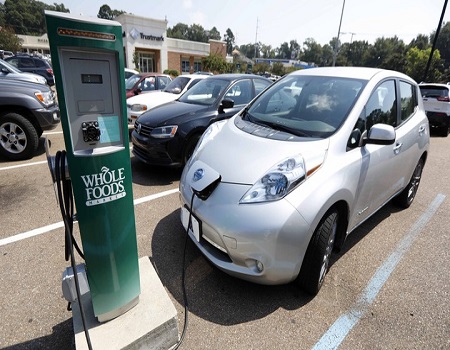
Registration data from the Norwegian Road Federation (OFV) has revealed that at least nine out of ten new cars sold in Norway in 2024 were fully electric.
This achievement brings the Nordic country closer to its ambitious target of exclusively selling electric cars by 2025.
The data, released on Thursday, shows that fully electric vehicles made up 88.9% of new car sales last year, a notable rise from 82.4% in 2023.
According to Reuters, Tesla dominated the market, followed by Volkswagen and Toyota. Chinese electric vehicles now account for nearly 10% of new sales.
“Norway will be the first country in the world to pretty much erase petrol and diesel engine cars from the new car market,” said Christina Bu, head of the Norwegian EV Association.
ALSO READ: Tinubu to Nigerians: Switch off your light to manage electricity bill
Norway, despite being an oil-producing nation, has implemented a unique approach by imposing high taxes on petrol and diesel cars while exempting electric vehicles from import and value-added taxes, though some levies were reintroduced in 2023. Experts credit the policy’s consistency, maintained by governments across political divides, for its success.
“Very often we see in other countries that someone puts tax incentives or exemptions and then they pull back again,” Bu noted.
Also, Norway’s lack of a domestic automaker lobby has simplified the process of taxing cars heavily. “We are not a car-producing country … so taxing cars highly in the past was simple,” explained Ulf Tore Hekneby, head of Norway’s largest car importer, Harald A. Moeller.
Instead of banning petrol and diesel cars outright, Norway relied on incentives to encourage the shift. “That would (have) made people angry. People don’t like being told what to do,” Bu added.
Norway’s policies have not only driven electric car sales but also led to a significant milestone: in 2024, electric vehicles surpassed petrol cars in total numbers on Norwegian roads, representing over 28% of all vehicles in the country as of December, according to the Public Road Administration.
Deputy Transport Minister Cecilie Knibe Kroglund highlighted the importance of Norway’s approach, saying, “That’s the big lesson: put together a broad package (of incentives) and make it predictable for (the) long-term.”
Meanwhile, the European Union plans to ban the sale of carbon-dioxide-emitting cars by 2035, although exceptions may be made for vehicles using fuels derived from captured CO2.
ALSO READ TOP STORIES FROM NIGERIAN TRIBUNE










